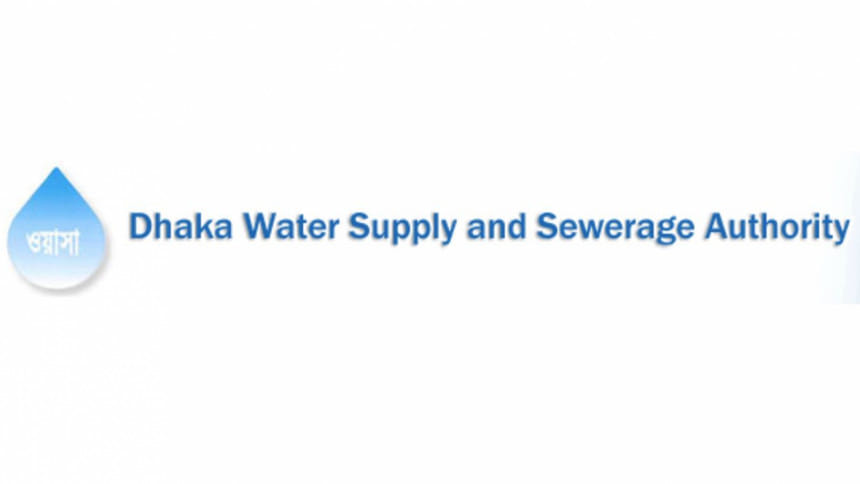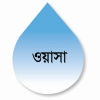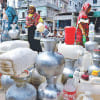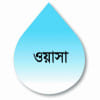Dhaka Wasa for 80pc tariff hike

Dhaka Water Supply and Sewerage Authority has proposed hiking water prices by 80 percent for residential and commercial uses.
Amid allegations of poor quality of tap water in the mega city, Wasa wrote to the Ministry of Local Government, Rural Development and Co-operatives for increasing the prices on September last year.
The Daily Star has obtained a copy of the letter.
Wasa has proposed Tk 20 for each unit (1,000 litre) of water for residential use. The existing price is Tk 11.57. For commercial purpose, it has recommended Tk 65 against the existing rate of Tk 37.04.
Wasa said it has become necessary to hike water prices so that it can repay loans taken for implementation and maintenance of different development projects. Besides, its operational costs have gone up.
"We have sent a proposal and the government is scrutinising it. Possibly, it is at the Prime Minister's Office for approval right now," Taqsem A Khan, managing director of Dhaka Wasa, told this correspondent yesterday.
Huge investment was required for modernising Wasa in recent years, and operational costs have also risen. In this situation, there is no alternative to hiking the price, he added.
"To run an organisation smoothly, subsidy is not an option. We have reduced system loss and modernised the service. So, hike in water prices is a must," he said.
Water prices were increased by 22 percent and 18 percent for residential and commercial uses respectively in 2017. The price of each unit of Wasa water was only Tk 6 in 2009, when the Awami League assumed power.
According to section 23 of the Wasa Act-1996, Wasa board can raise water price by five percent annually.
It also hiked the price five percent last year, citing inflation.
City dwellers and experts said water price hike would be a burden for people.
In summer, people of Jatrabari, Shyampur, Mir Hazirbagh, and adjacent areas suffer severe water crisis.
"Last year, there were instances that we stayed awake all night to get water but failed," said Sirajul Hoque Khan, a resident of Mir Hazirbagh.
"Like in ancient times, we had to wait for rain. Because on rainy days the supply [of water] used to get normal," he said.
He sees the decision as a blow to the city dwellers.
Sazzadur Rahman, a resident of Mohammadpur area, said he does not get adequate water supply every day.
"We are not getting the water we are paying for. If the service does not get better, why will we pay more?" he asked.
Contacted, Consumers Association of Bangladesh President Ghulam Rahman said, "Wasa's overall service quality is not good. In some places, the service is good, but in most places, especially in the densely populated areas, the service is poor. In this context, price hike of water every year is not acceptable in anyway."
Quality of Wasa water always remains a big concern.
Last year, Transparency International Bangladesh in a survey report said nearly 45 percent people in the capital do not get the desired amount of water from Wasa.
Besides, about 35 percent complain of poor-quality water throughout the year.
It also said 91 percent clients of the Wasa have to boil the water before drinking, although it is supposed to be safe for drinking.
LETTERS
On September 2 last year, Wasa sent the letter to LGRD secretary.
In the letter, it was mentioned that from 2016-19 some projects were implemented and some were under implementation. So, the existing prices of water for residential and commercial uses are not sufficient.
It added that if water supply starts from Padma Water Treatment Plant in Munshiganj, costs of each unit of water will be Tk 27-28.
In the letter, the Wasa MD said to make the Dhaka Wasa financially sustainable, its income should be increased. It is hard to provide the city dwellers with quality service when the organisation is run with subsidy.
Wasa requested the price hike from January last.
The local government ministry replied to the letter on January 14.
In its letter, the ministry asked costs of each unit of water, amount of Wasa's loan, water price in Delhi and Kolkata of India, Kathmandu of Nepal, Seoul of South Korea, Manila of the Philippines, London of the UK, and Stockholm of Sweden.
Wasa replied on January 16. In a letter, it mentioned that only operational costs of each unit of water is around Tk 20. With other expenses, the total costs go up to Tk 25.
It added that Dhaka Wasa's loans for implementing different projects is around Tk 600 crore.
It also mentioned each unit of water price is Tk 31 in Delhi, Tk 21.73 in Kathmandu, Tk 39.52 in Seoul, and Tk 21.87 in Stockholm.

 For all latest news, follow The Daily Star's Google News channel.
For all latest news, follow The Daily Star's Google News channel. 







Comments